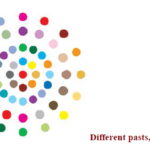Maintaining clear definitions is vital for the purpose of applying legal protections, argues Professor Alessandra Asteriti.
In the debate on transgender rights, what is often lost is the importance of maintaining a workable definition of woman for the purpose of applying equality and human rights law. As any lawyer or legal scholar will know, definitions are extremely important. Domestic acts and international treaties often contain their own definitions, or refer to commonly agreed definitions of the terms included in the treaty or the legislation, for the avoidance of doubt and to guarantee coverage. For example, Article 212 of the Equality Act 2010 defines woman as “female of any age”. The 1981 Convention on the Elimination of All Forms of Discrimination against Women does not contain a definition of woman, but its Article 1 states as follows:
For the purposes of the present Convention, the term “discrimination against women” shall mean any distinction, exclusion or restriction made on the basis of sex which has the effect or purpose of impairing or nullifying the recognition, enjoyment or exercise by women, irrespective of their marital status, on a basis of equality of men and women, of human rights and fundamental freedoms in the political, economic, social, cultural, civil or any other field.
Outside of the law, a common understanding of womanhood is engrained in human culture. For women this has often mapped on stereotypical ideas of gender, defining what women can and, most importantly, cannot do. These limiting definitions of womanhood are not biologically predetermined, as conservative groups in society would want, but they are grounded in the biological identity of women, specifically women’s reproductive role. Contrary to what critics of gender critical feminists claim, this does not mean that feminists want to reduce women to their biology, or that this interpretation of womanhood excludes sterile women, or girls, or post-menopausal women. No feminist wants to reduce womanhood to biology. But no feminism can be understood without reference to our biology and our reproductive potential, or lack thereof.
Women have always been valued, or devalued, on the basis of their reproductive potential.
As young girls, made to take care of their younger siblings to prepare for motherhood.
When their first period arrived, told that they had become women (that they were ready for sex and reproduction).
As young brides, prized for their reproductive potential.
As wives, forced to give birth to a succession of children, or discarded if incapable to do so (or if incapable to give birth to males).
As unmarried women, pitied or despised for their failure at motherhood.
As older women, mocked or feared because of their freedom from reproductive slavery.
This has been the fate of women for the entirety of history, and it still is in many countries outside the restricted number of countries where feminism has been more successful in freeing women from their perceived biological destiny, granting them complete personhood. This is a very recent conquest.
As a ten years old girl, I was congratulated on having become a woman myself.
When I was little, I often heard the wish “Auguri e figli maschi” to newlyweds (Good wishes and male children).
When I was born, rape was a crime against public morals and not against the person (it became so in 1996).
When my mother was born, marriage still extinguished the crime of rape in Italian law (the law was changed in 1981).
When my grandmother was born, Italian women did not have the vote (they gained it in 1946). My own great-grandmother gave birth to 21 children.
We have been fully human for a little more than a hundred years of human history, but now we are being told that ‘woman’ is not something you are, but something you feel, and any man can have this feeling and usurp womanhood (the nice bits of it) and tell women that he is the most oppressed woman, not us.
But woman means female. And only females suffer the discrimination that has been meted out to women for millennia, and that we still see in huge numbers. Here is some data, which I originally shared on Twitter.
- Selective abortions and female infanticide. There are an estimated 126 million missing women in the world (United Nations Population Fund). This vastly exceeds the total number of casualties of the Second World War. For too many girls, being female is a death sentence. And sex is not on a spectrum, and gender does not matter. Male = you live; female = you die.
- Female Genital Mutilation. There are an estimated 200 million women affected by FGM (World Health Organization).
- “Child Brides”. There are an estimated 650 million women who married when they were children (Girls Not Brides).
- Child-birth mortality. An estimated 830 women a day die in childbirth (WHO).
- Pregnancy discrimination. 11% of women are dismissed from work and 20% are harassed because of pregnancy status in the UK (Equality and Human Rights Commission).
- Sexual assault and abuse (including rape). It is calculated that around 35% of women in the world have suffered some form of abuse or assault of a sexual nature. Since infant and young girls and old women are not immune from the risk of sexual assault and calculating therefore from the total of female population, this means around 1.3 billion women. In the worst country in the world for rape statistics, Ethiopia, 60% of women have suffered from sexual violence (United Nations).
- Period discrimination. In its worst form, which is the segregation of women during their period, deaths are recorded every year in Nepal especially (segregation is called Chaupadi in Nepal), although precise numbers are not easily available (Office of the High Commissioner of Human Rights). Period poverty and missed school attendance are more common problems around the world, including in Western countries.
None of these issues, with the exclusion of sexual violence, affects transwomen, because they are biological males. But diluting the definition of woman to accommodate males could have a pernicious effect on the human rights and equality protections that the law provides in order to remedy sex discrimination and improve the standing of women in society. Additionally, it would make statistical data collection for medical, social, criminal and educational purposes unreliable and pointless.
Framing this as an issue about rights or fairness is illogical. Discrimination law works by establishing a comparator for the person affected by the perceived discrimination. For a transwoman, the appropriate comparator is not another woman (on the other hand, the appropriate comparator is the female sex group for a transman, who is biologically female). Women have rights on the basis of their sex, and transwomen do not belong to the same sex group. Additionally, just like it is crucial to work with a clear definition of woman, it is equally important to have a clear definition of transgender. There is a considerable difference between a fully transitioned transsexual woman and a cross-dresser. It is simply unacceptable to elide this difference in the application of equality and human rights law. Gender expression (not identity) should be protected as a form of freedom of expression under human rights law, transsexual status under equality law, with the allowed exceptions already contained in the law.







